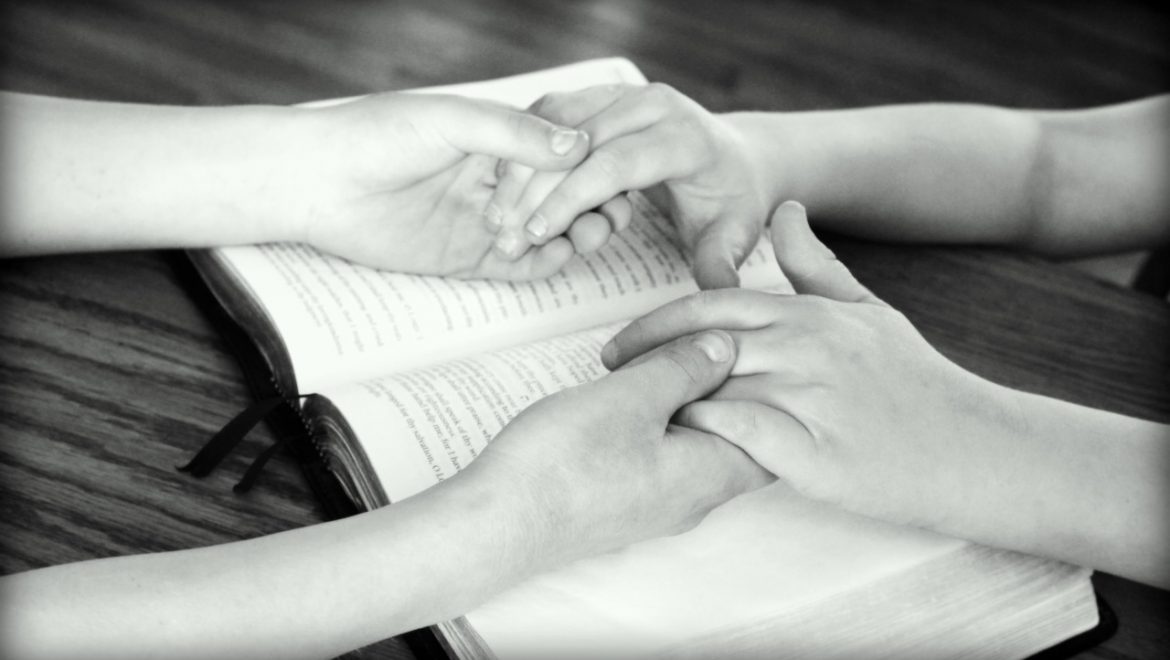
This thorough excerpt from “Friday Night and Beyond” by Lori Palatnik explains the biblical origins of the ritual blessing over the children on Friday night, as well as a practical how-to guide for parents, complete with the Hebrew, English and transliterated texts and audio recordings of the blessings. The author provides meaningful explanations of the blessings themselves, including stories about the biblical role models that Jewish children are blessed to emulate. The article concludes with personal reflections from three different parents about how they feel when blessing their children on Shabbat. Lori Palatnik is a writer, Jewish educator and the Founding Director of The Jewish Women’s Renaissance Project, an international initiative that brings thousands of women to Israel for inspirational trips.
Blessing the Children
It is a beautiful custom to bless your children every Friday night; it’s a moment filled with love and meaning, especially when you understand the source behind such a tradition.
The Blessing for Sons
One of the Fathers of the Jewish people was Jacob, who had 12 sons who were to grow to become the leaders of the 12 tribes of Israel. The next-to-youngest son was Joseph, who had two sons, Ephraim and Menashe.
Just before Jacob died, he called all his sons for a final blessing. As a special reward to Joseph, who remained righteous throughout his ordeal of exile, he calls forward Joseph’s two sons, Ephraim and Menashe, and gives them a special blessing, as well as two portions of the Land of Israel:
On that day Jacob blessed them, he said, “In time to come, Israel (the Jewish people) will use you as a blessing. They will say, ‘May God make you like Ephraim and Menashe’.” (Genesis 48:20)
Jacob’s blessing was that they should be a blessing, an example to the Jewish people for all time. From that day forward, they would become role models for Jewish children everywhere, as they represented qualities to emulate eternally.
What were these qualities?
Ephraim and Menashe were the first brothers among our forefathers to live without rivalry. Before them came Isaac and Ishmael, Jacob and Esau, and, of course, Joseph’s brothers who sold him as a slave – all relationships fraught with conflict and competition.
Ephraim and Menashe were brothers who lived in harmony, for their life focus was the highest example of working for good for their community and people. Decisions were not based on, “What is good for me?” but on, “What is good for the Jewish people?” Concerns of ego were cast aside in favor of something greater. The words of King David ring true: “How good and pleasant is it for brothers to sit peacefully together” (Psalms 133:1). This is the hope that God holds for all the Jewish people.
In addition, of the 12 sons and their families, these two were the only ones to grow to maturity outside of the Land of Israel. Yet despite great odds, they still remained steadfast in their commitment to Judaism. We cannot always guarantee that our children will not be exposed to a negative environment. We therefore give them the blessing to be like those who were not tempted by their immoral surroundings and maintained their ethical and righteous behavior.
Thus the qualities exhibited by Ephraim and Menashe being united in their quest for the good of all, as well as possessing the strength of character to maintain Jewish values in a non-Jewish environment – became the benchmark for raising Jewish children even millennia later.
The Blessing for Daughters
Sarah, Rebecca, Rachel, and Leah… the mothers of the Jewish people. Each one possessed unique qualities that played essential roles in the strength and future of the nation. Yet there was something they all shared, something that Jewish women for all time would strive to emulate.
Each one lived in recognition that the ultimate in fulfillment is enabling others to realize their potentials as individuals and as members of the Jewish people. The Torah is filled with accounts of these women, recording their insight, their giving nature, and their sensitivity, leadership, and special ability to inspire others. Beyond this, all of the matriarchs were great, righteous women, who hailed from the homes of wicked people – what we call today ” a bad environment.”
One example of this is the story of the sisters Rachel and Leah. One day into their lives stepped Jacob, destined to be one of the fathers of the Jewish people. Jacob fell in love with Rachel and asked her father, Laban, for her hand in marriage. Laban promised it, and yet, at the last minute told his daughters that it would be Leah who would marry Jacob instead.
Rachel could have reacted with resentment and jealousy, but instead she helped Leah to marry Jacob, for she recognized that her sister needed to do this in order to fulfill her life’s purpose and to become one of the mothers of the Jewish people.
This act of selfless giving, where the other person’s needs (which may be just as important as our own) take priority, is the quality that Rachel and the other mothers of the Jewish people truly exemplified.
But it wasn’t all so self-sacrificing, for Rachel knew that doing the right thing, enabling Leah to step into her place, was the ultimate in her own fulfillment. For when we give to others who need us and help them to realize their potential, it fulfills our own needs and our own desires to grow.
We see this in our relationships today, whether it be with friends, family, or even in the workplace. When the needs of others are our priority, our own sense of self is heightened immeasurably, and our relationships become worlds of giving, where love and self-esteem flourish.
These women all shared a special relationship with the Almighty, and used the gifts He gave them for the good of others and for the Jewish people. When we bless our daughters on Friday night, we are asking God to endow them with the qualities of their foremothers, and we remind ourselves what real giving is all about.
How To
- There are different customs in different homes. Some people get up and go to their children’s place, others have the children come to them. In some homes the father gives the blessing to each child; in others it is both parents.
- In either case, a hand is placed on the child’s head and the following blessing is recited, appropriate for the girl or boy.
- Afterward, it’s nice to whisper something personal into the child’s ear, praising some accomplishment in his or her week, such as a good mark on a test or playing nicely with a kid brother. It’s your special moment with your child – use it as a way of connecting in your own personal way.
Blessing for a Son
http:https://image.aish.com/misc/Blessing-Boy.mp3

Blessing for a Daughter
http:https://image.aish.com/misc/Blessing-Girl.mp3

Reflections
For several years, I was diligent to give each of my daughters a Shabbos bracha, imploring God to make them like the great Jewish matriarchs, Sarah, Rebecca, Rachel, and Leah.
After our daughters went away to school, I was faced with a dilemma. How will I give them a Shabbos bracha? Then it struck me – why not over the phone? That’s what I did and the practice has continued to this day. Friday morning we call our younger daughter (now studying in Jerusalem), and I give her a bracha. Later in the day, we do the same for our elder daughter in Manhattan.
Regardless of where they are, I lovingly give each of them a Shabbos bracha. I honestly don’t know who enjoys it more, my giving it, or their receiving it. No matter. We wouldn’t miss it for the world. It’s truly the tie that binds us as a family, and our family to its Jewish heritage.
***
I didn’t raise my children in a traditional home environment, so it was pretty surprising – to put it mildly – that they grew to become observant.
My husband and I love to spend Friday nights in their homes, with the whole family gathered around, everyone dressed in their Shabbat best, the table glittering with silver and crystal…. But my favorite part is when my grandchildren go to each of their parents to receive their blessing.
It’s so touching – and so healthy! No matter what conflicts occurred during the week, at that moment the child cannot help but feel very special and very loved.
No doubt that they will grow with fond memories of those Friday night blessings, truly the building blocks of self-esteem.
***
My father has been giving a blessing to my wife and to myself every Friday night for a long time now, and yet when my own son was born, I didn’t do it to him. I think I just felt uncomfortable doing it in front of everyone.
A few months ago I started sneaking the blessing to him when everyone got up to wash. The first time I did it, it felt amazing. So gradually I started building up my strength, and at last I did it at the appropriate point, with everyone at the table. Now it’s an honor to do it, and my one-year-old son sits there as I place my hand on his head and give him his blessing. I can’t believe how good it makes me feel.

